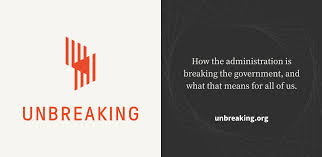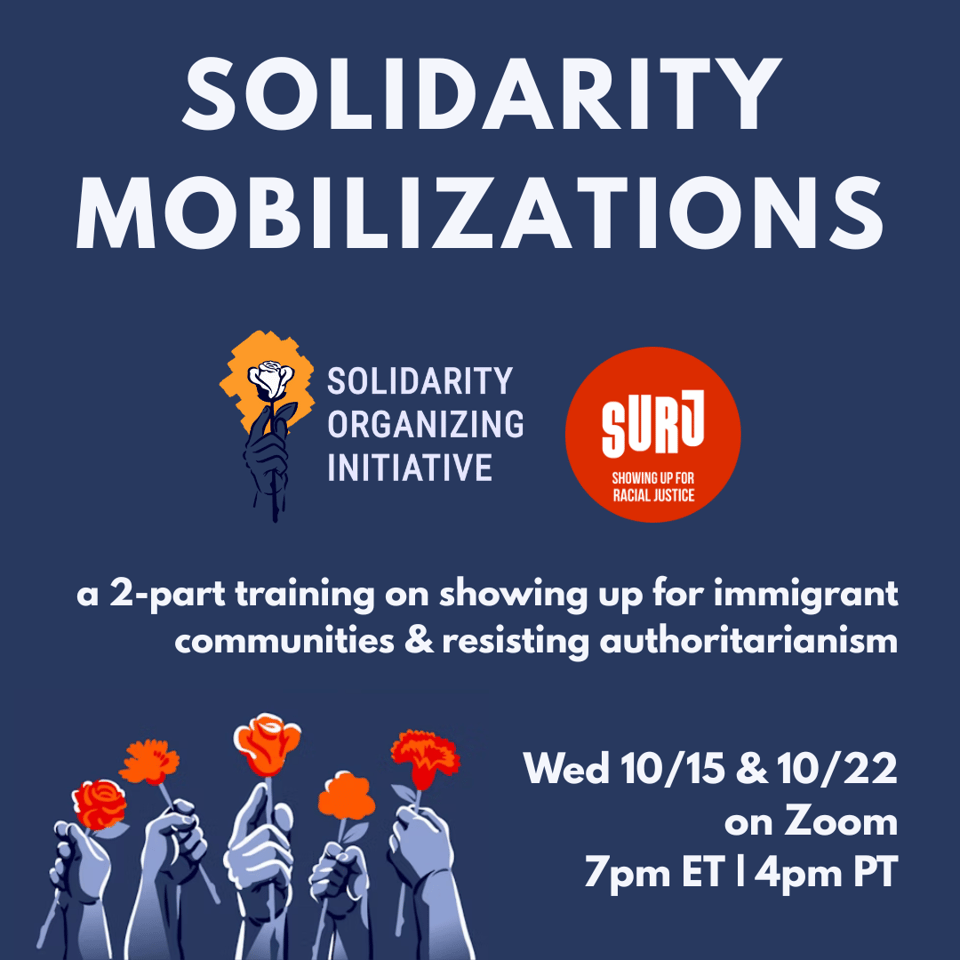Making Sense of Authoritarian Moves: My Thematic Analysis of Unbreaking
What’s really happening to our government—and how are people resisting? In this issue, we break down Unbreaking, a volunteer-run project tracking authoritarian moves and the countermeasures already underway. Learn the patterns, see the resistance, and discover how shared analysis can help us act strategically for democracy and the public good.
In today’s newsletter, I want to share a project I’m working on in collaboration with Liz Neeley and Liminal LLC. I’m doing a thematic analysis of Unbreaking.

What is Unbreaking?
Unbreaking creates clear, rigorously sourced explanations of what’s happening to the U.S. government—and why it matters. They map the damage done by the Trump administration and its human costs.
This volunteer-run collective compiles events, connects contexts, and translates complex systems into accessible materials—updated regularly to reflect new developments. Their work combines research and collaboration to make sense of government dismantling, highlight human impacts, and document how people are protecting essential services and communities.
As a trusted source, they help us stay informed about what’s happening without being overwhelmed.
What I’m Doing
My background is as a social scientist, and I’m applying a qualitative research method called thematic analysis—a way to sift through large amounts of data to identify patterns and themes.
I’ll be going through Unbreaking’s pages to find themes that help us make sense of this moment:
What authoritarian moves the Trump administration is making
What countermoves—the ways people are resisting—are already underway
Why This Matters
Why am I doing a thematic analysis of the Unbreaking pages? (Other than being a huge geek, of course.)
Because developing a shared political analysis of this moment is essential.
In science spaces, I often hear people describe the Trump administration’s actions as “attacks on science,” “anti-science,” or “anti-expertise.” While those descriptions aren’t wrong, they’re incomplete. A shallow analysis treats this as a single-issue problem—something that might “blow over” once we elect more pro-science Democrats.
But research shows that mass, coordinated, nonviolent action is the most effective way to counter authoritarianism—not waiting for it to pass. There’s no silver bullet, but there is a path forward: millions of people, aligned in analysis and coordinated in action, can defend democracy and transform science for the public good.
We need to connect the dots between what look like “attacks on science” and the broader dismantling and privatizing of public goods—moves designed to consolidate authoritarian power. A deeper analysis helps us move from reacting to strategically responding as a resistance movement.
What This Analysis Will Be Useful For
My hope is that identifying these patterns will help us name:
What authoritarian moves Unbreaking has already documented
Which moves from the authoritarian playbook we haven’t yet seen and should prepare for
What countermoves are already happening
What other countermoves our movements could explore
How these efforts compare to what has worked before, in the U.S. and internationally
Much of my thinking here is inspired by the Solidarity Mobilization Trainings from Showing Up for Racial Justice (SURJ) and the Solidarity Organizing Initiative, which are training more than 4,000 SURJ members to show up in solidarity with immigrant neighbors. I highly recommend checking out both of these organizations as exemplars of meeting this moment.

Understanding the Authoritarian Playbook

How do we know what moves authoritarians make?
The Authoritarian Playbook of 2025, published by United to Protect Democracy, takes seriously the Trump administration’s promises, powers, and plans to entrench an autocratic regime. It also provides expert recommendations for how to mitigate that danger. I’ll use this report to form themes for the moves and countermoves identified by Unbreaking.
Authoritarians seek to capture mainstream media and tell a single story of dominance—of their consolidation of power as inevitable. They want us to believe this narrative so we feel hopeless to fight back. But when we look closer, as Unbreaking helps us do, we see it’s not the truth.
The truth is that pockets of resistance are everywhere. We’re learning from one another and from past movements. We’re expanding our imaginations beyond the single authoritarian-controlled story and working in coordinated formation to push back.
What’s Next
In future newsletters, I’ll share what I’m finding—concrete case studies from Unbreaking’s powerful work. These will also be part of our upcoming Scientists in Solidarity strategy trainings, where we’ll use them to build a shared understanding of what’s actually happening.
This will prepare us to talk with others in our networks—to be brave, step outside our comfort zones, and engage those who think these are just “attacks on science” or that “it’ll blow over.” Instead, we’ll face the truth of this moment and get prepared together for what’s to come.
Holding Contradictions
We’re living in a time that requires us to hold the “both/and”:
Authoritarianism is not new in this country, especially for marginalized groups—and yet what we’re seeing now is an escalation.
We must be honest about current authoritarian strategies and resist despair in the face of them.
Because the truth is: resistance is happening.
Which examples of resistance are you seeing? Reply to this newsletter and share them—I’d love to highlight your examples in a future issue.
Stay tuned for future newsletters where I will explore authoritarian moves and countermoves we are seeing in science spaces, pulling from a thematic analysis of Unbreaking.
Scientists in Solidarity
Scientists in Solidarity exists to bring together these scattered forms of resistance into a united front—through Action Hours, strategy trainings, and coalition-building.
The most important thing you can do right now is to find your people (join an organization) and find your lane. We’re here to help you do both.
Ways to Engage
🧩 Join Unbreaking.
Volunteer your time and skills to help make sense of what’s happening—and strengthen democracy in the process.
🖋️ Get involved.
🌱 Action Grows from Connection.
Scientists in Solidarity's Action Hours are spaces to learn, reflect, and act in solidarity with others who care about equity, truth, and democracy.
💡 Reserve your spot.